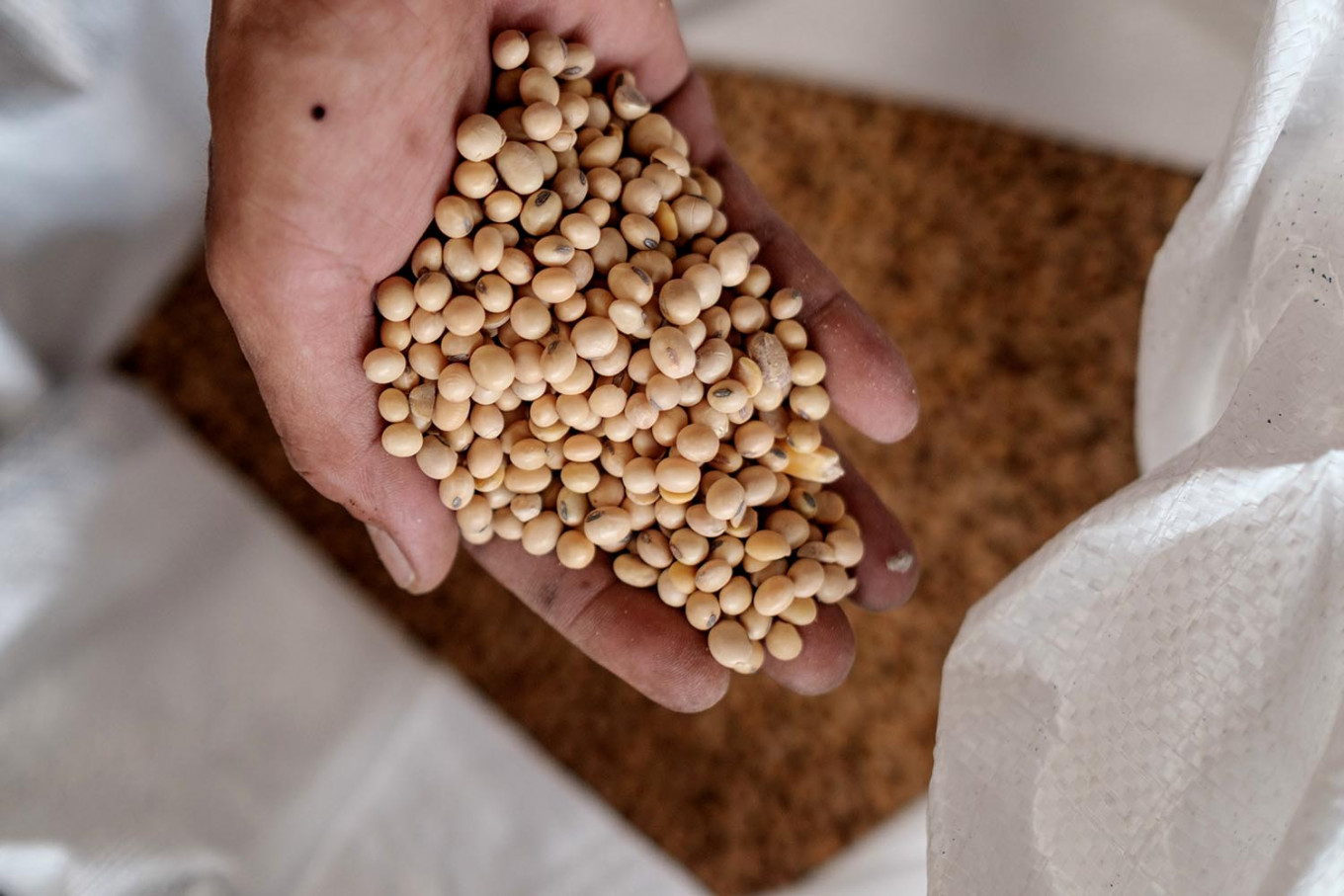Popular Reads
Top Results
Can't find what you're looking for?
View all search resultsPopular Reads
Top Results
Can't find what you're looking for?
View all search resultsFertilizer subsidies wasted
To protect domestic farmers, imports have to be controlled with quotas for specially appointed importers.
Change text size
Gift Premium Articles
to Anyone
W
e fully understand the utter disillusionment President Joko “Jokowi” Widodo expressed last week over Indonesia’s seemingly perpetual deficit of such food commodities as soybean, sugar, maize, garlic and shallots that made the country heavily dependent on imports, and consequently prone to wild price fluctuations.
“We should review the Rp 33 trillion (US$2.3 billion) we spend annually on fertilizer subsidies because they seem to be totally ineffective at increasing farm productivity,” the President said.
It is indeed rather strange that as an agrarian country with a population of about 270 million, Indonesia still depends, to varying degrees, on imports not only for rice, the national staple, but also for maize and most horticultural products. This food deficit has caused a vicious cycle as the government is often forced to allow imports, especially for the annual peak demand periods of the Islamic fasting month and Idul Fitri holidays in order to keep prices down.
To protect domestic farmers, imports have to be controlled with quotas for specially appointed importers. But the bureaucratic process of appointing importers and distributing quotas has always been notorious for corrupt practices.
While the President’s observation about wasteful fertilizer subsidies is absolutely right, we wonder why it took so long for him to realize the miserable failure of his agricultural policies. Although he has not admitted it, the bitter fact is that he has failed to achieve the production targets of all main food commodities he set at the outset of his first term in October 2014.
The latest uproar about the steep rise in the price of soybean, the basic material for very popular tempeh and tofu snacks, only reconfirmed that the country still depended on imports for 80 percent of its annual soybean consumption, whereas Jokowi promised to achieve self-sufficiency in 2016.
Domestic and foreign agricultural researchers, including those of the Asian Development Bank, World Bank and the Organization for Economic Cooperation and Development, have been warning for several years that fertilizer subsidies, which account for more than 30 percent of total agricultural subsidies, not only were ineffective at increasing farm productivity, but had also been wasted through misappropriation due to the wide price differences (often as much as 40 to 50 percent) between subsidized and non-subsidized fertilizers.
Almost all studies have concluded that growth drivers in agricultural production are research to develop high-yield seeds, innovation, extension services to help farmers adopt best farm practices in tilling, planting, pest and fertilizer management and harvesting. In fact, generous subsidies have often led to excessive fertilizer application at the expense of the environment.
So what is urgently needed is a bold decision to phase out fertilizer subsidies so the government is able to allocate a bigger budget to improve rural infrastructure, expand extension services, research and development, strengthen regulatory services for private seed developers, which are mostly joint ventures with foreign seed companies, and provide incentives for digital marketing services for farmers.










